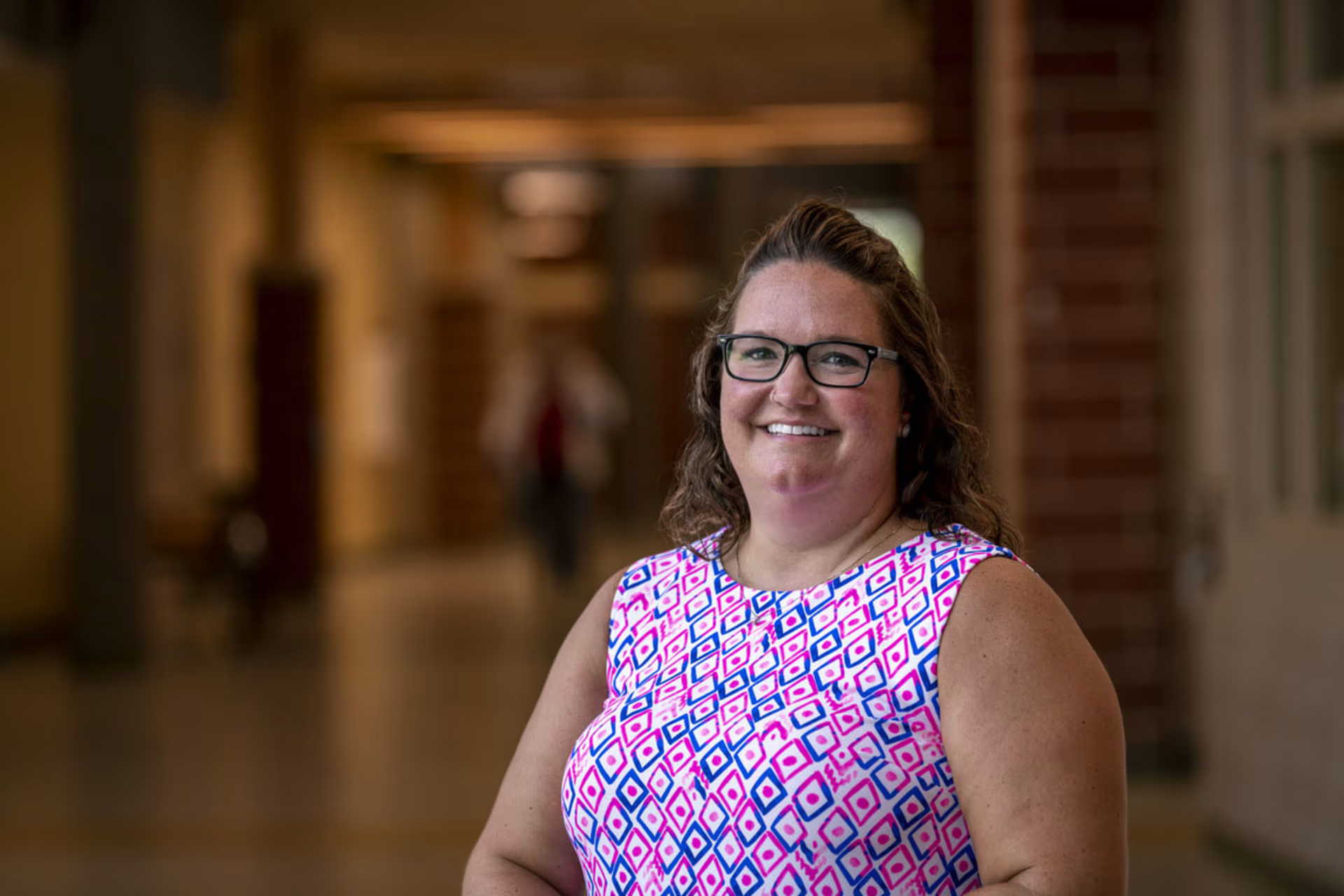
Online Education Specialist Degree (EdS) in Teaching and Learning
Develop Competence in Improving Student Outcomes
The Education Specialist in Teaching and Learning (EdS) degree at Grand Canyon University is a post-master’s program which allows K-12 educators to enhance the skills and knowledge necessary for developing education communities that improve student outcomes. Offered by GCU’s College of Doctoral Studies, this fully online teaching and learning program emphasizes theories and models of teaching in various educational environments, from elementary to high school.

Pursue Your EdS in Teaching and Learning Online
The aim of the online EdS degree in teaching and learning is to give current educators the skills, through research-based teaching strategies, to develop collaborative educational communities with the purpose of improving student learning and driving classroom success in K-12 environments.
You will be taught to make connections between past philosophies of education and current issues and emerging trends in the field. This can help you to develop the skills to identify and implement effective models or theories of change, innovative technologies and modern methods to enhance your learning environments.
The specialist degree in education at GCU focuses on the following:
Education Specialist Degree in Teaching and Learning Coursework
As a private, Christian university, GCU integrates faith into each of its programs. Courses within the education specialist degree program for teaching and learning use a curriculum rooted in the Christian worldview that addresses socially responsible practices and ethical decision-making within education.
Throughout this online program, you can:
Examine the global politics of education and the intervention facilitated by government entities
Study professional learning communities and theories of pedagogy
Explore ways to train and develop the teams that learners are preparing to lead and support
Learn to excel in teaching by studying industry trends
Implement new effective teaching strategies based on original research
Apply findings to foster greater classroom success

Build Your Portfolio in the Capstone Project
An EdS capstone course concludes the program, providing learners with the opportunity to apply the skills they have developed to their professional interests and goals. While earning your specialist degree in education, you will develop a written project suitable for a professional portfolio.
The EdS degree program offers a rigorous curriculum and takes an in-depth, analysis-based approach to every course. Unlike GCU’s doctoral education degrees, the teaching and learning specialist program does not require completion of a residency or dissertation. This allows current full-time teachers to complete their program on a more flexible schedule.
Career Opportunities for EdS Degree in Teaching and Learning Graduates
Graduates of this program are taught how to move beyond traditional classroom responsibilities and drive change with the research and collaboration skills developed throughout the program.
After completing the program, educators may pursue higher-level roles at the school and district levels or higher. The knowledge and skills developed during the EdS program can equip educators to position themselves for advanced careers in school leadership, administration or consulting.
The online Education Specialist degree in teaching and learning program allows teachers with a master’s degree to position themselves for career advancement without enrolling in a full doctoral program. However, if you are unsure whether you should pursue an EdD or an EdS degree for your career goals, speak with a GCU university counselor for more information about these programs.
Online Education Specialist Degree in Teaching and Learning FAQs
Learn more about earning your Education Specialist degree in teaching and learning by reading answers to these commonly asked questions:
Is an EdS degree in teaching and learning a terminal degree?
What is a learning specialist in higher education?
Can you get an EdS degree in teaching and learning without a master’s degree?
What degree can a learning and development specialist pursue?
What type of EdS degree should I earn?
Program Curriculum
Core Courses

Apply for enrollment in GCU’s Education Specialist Degree (EdS) in Teaching and Learning today. Complete the form on this page to get started.
If you are seeking licensure/certification, please refer to the "Accreditation and Compliance/State Disclosures” link for the specific program of interest’s website for your location and/or employment state’s licensure requirements, per 34 CFR 668.14(b)32 and 668.43(c).
(See disclaimer §) MOU-Alumni 2000 Doctoral-Feb2026: The Alumni Scholarship for Doctoral Programs is only valid for those applicants who submit a complete application and begin a Doctoral program in February 2026. This scholarship cannot be used in conjunction with any other GCU scholarship or awards and only applies to online and evening programs. Please speak to a university counselor for complete details.


